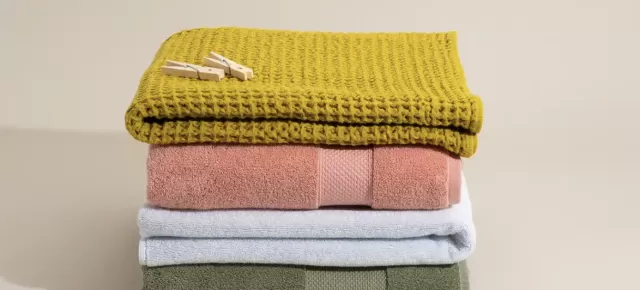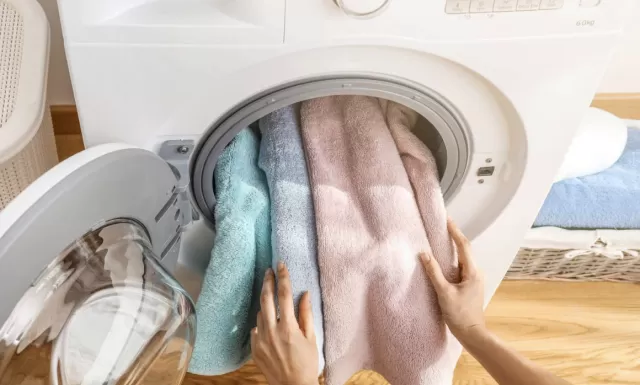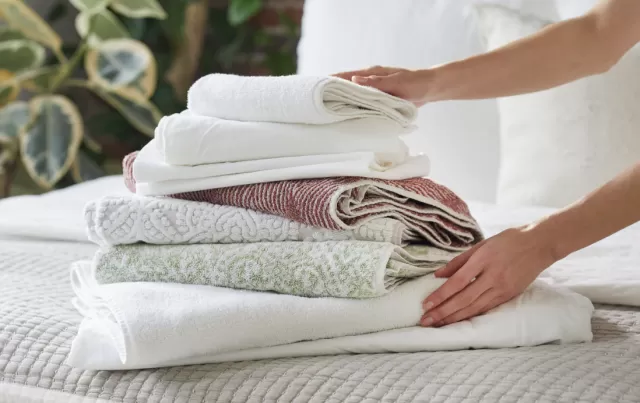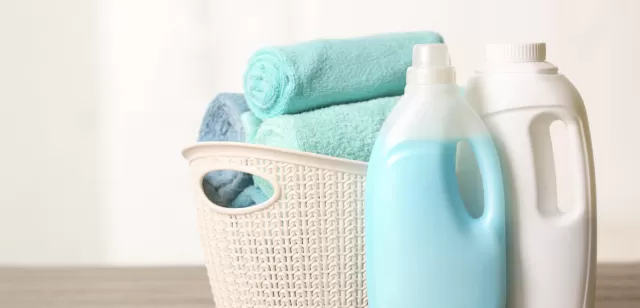Towels are an essential part of any household, whether you’re purchasing them for daily use, as a new set for guests, or as decorative items for a powder room. However, high quality can be expensive, so it’s important to take steps to extend their lifespan. To ensure your towels stay soft and fluffy for as long as possible, experts recommend a few simple Tips and Tricks, as well as avoiding some common mistakes. Keep reading to find out how to make the most out of your towel investment.
What is the Average Lifespan of Towels?

Whether you’ve splurged on a set of luxurious Egyptian cotton towels or snagged a bargain deal on a simpler option, every towel has a limited lifespan.
According to Lindsey Johnson, co-founder and CEO of Weezie Towels, a typical towel can last up to two years with proper care, although heavily used towels may need to be replaced more frequently, while those primarily used for display can last even longer. The signs that it’s time to replace a towel are the loss of its fluffy, absorbent qualities and the development of a musty smell.
Keep reading to learn more about how to maximize the lifespan.
The Ultimate Guide to Washing Your Towels

When it comes to washing your towels, there are a few guidelines to keep in mind.
If your washing machine includes a towel set, that’s the ideal option to use. However, if it doesn’t, Lindsey Johnson, co-founder, and CEO of Weezie recommends washing every three to five uses in cold water.
The reason for using cold water is that high heat can cause shrinkage and weaken the cotton fibers over time, resulting in less soft and fluffy towels. While one hot wash won’t necessarily harm your towels, repeated exposure to hot water can.
On the other hand, Daelin Arney, soft goods designer at Cozy Earth, suggests that warm water is acceptable for washing.
Additionally, a sanitizing cycle can be used occasionally, but it may not be suitable for every wash, depending on the towel fabric. A sanitizing cycle uses water that can reach temperatures over 140 degrees Fahrenheit, which consumes a lot of energy and can be hard on textiles.
It’s best to reserve this cycle for when a towel is exceptionally dirty or when someone in your household is sick.
Regarding drying, Johnson recommends using low heat only.
High heat can reduce the lifespan of your and make them feel rough and crunchy. By following these simple steps, you can ensure that you are clean, fresh, and long-lasting.
Why You Should Wash Your Towels Separately

Although it may be tempting to wash your towels with other items like bedding or clothing, it’s actually best to wash them alone.
According to Lindsey Johnson, co-founder and CEO of Weezie, terry cloth material is prone to snagging, which can damage other garments in the same load. However, if you must wash you’re with other items, be sure to avoid garments with hooks and eyes, such as bras, tops, or dresses, which can easily catch on the terry loops.
By washing your towels separately or with other appropriate items, you can help keep them in great condition for as long as possible.
Towel Care Tip: Say No to Fabric Softener and Excess Detergent

Although fabric softener can make clothes and linens feel soft and smell great, it’s not ideal for towels or washing machines.
Daelin Arney, the soft goods designer at Cozy Earth, explains that fabric softeners can create buildup on towels, ultimately reducing their absorbency over time. Additionally, fabric softeners can have negative effects on your washing machine’s performance.
Similarly, using too much detergent can also be problematic.
While it may be tempting to add extra detergent to tackle heavily soiled, it can cause buildup over time. This buildup can contribute to feeling less soft and less absorbent.
By avoiding fabric softener and using the recommended amount of detergent, you can help keep your in great condition and prolong their lifespan.
*The information is for reference only.